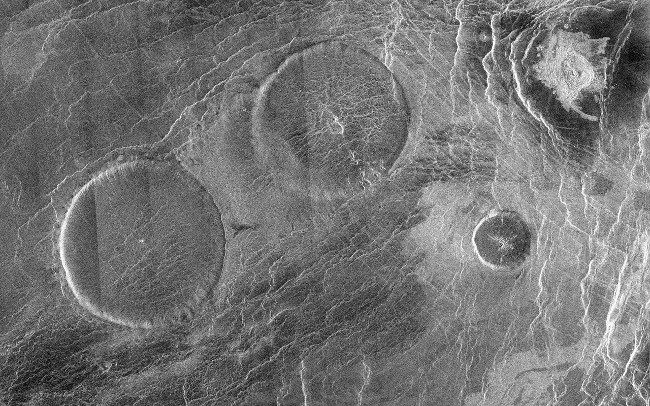Science explains why Venus has so few volcanoes
Researcher Sami Mikhail has just released the latest claims explaining why Venus has so few volcanoes.
Before, Venus is known to be the most Earth-like planet in our Solar System. But, surprisingly, it doesn't have as many volcanoes as Earth. And for a long time, science is still not sure to explain this mystery.
Recently, Sami Mikhail Researcher of the University of St. Andrews explained that because on Earth, the amount of magma is pushed up through cracks in the planet's crust, forming volcanoes. On Venus, magma sprayed up is blocked by geological crust like Play-Doh modeling clay .
 On Venus, magma sprayed up is blocked by geological crust like Play-Doh modeling clay.
On Venus, magma sprayed up is blocked by geological crust like Play-Doh modeling clay.
Moreover, the homogeneity on Venus's shell caused by its maximum temperature is subject to the Sun and the dense atmosphere. The intense heat caused the planet's outer shell to become dreary, arid.
This has caused the geological composition of Venus to become unique, with little formation of planetary layers, making it difficult to form volcanoes.
Despite the similarities between Earth and Venus, these two planets have very different internal geological and geological environments.
" If we can understand why the two planets are almost identical, but there are actually many differences, then we can understand that humans are completely hard to find or live on one. Another planet that looks like Earth, Venus is an arid, hot and extremely mysterious land "- Sami Mikhail, an environmental and earth scientist at St. Andrews University said in a Press Release.
Mikhail and his colleagues are currently working to explain why a planet similar to Earth and Venus could develop such unique atmospheres and climates.
- 10 interesting facts about
- Venus has volcanic eruptions
- NASA wants to bring people to Venus
- Overview of Venus
- Interesting things about the planet
- Venus can stay?
- Venus Experss are about to plunge into the Venusian atmosphere
- Venus is about to be a
- Why does life appear on Earth instead of Venus?
- After 8 years of Venus exploration, Venus Express has run out of fuel
- 10 most interesting things about Venus
- Plan to conquer human Venus
 Van Allen's belt and evidence that the Apollo 11 mission to the Moon was myth
Van Allen's belt and evidence that the Apollo 11 mission to the Moon was myth The levels of civilization in the universe (Kardashev scale)
The levels of civilization in the universe (Kardashev scale) Today Mars, the sun and the Earth are aligned
Today Mars, the sun and the Earth are aligned The Amazon owner announced a secret plan to build a space base for thousands of people
The Amazon owner announced a secret plan to build a space base for thousands of people